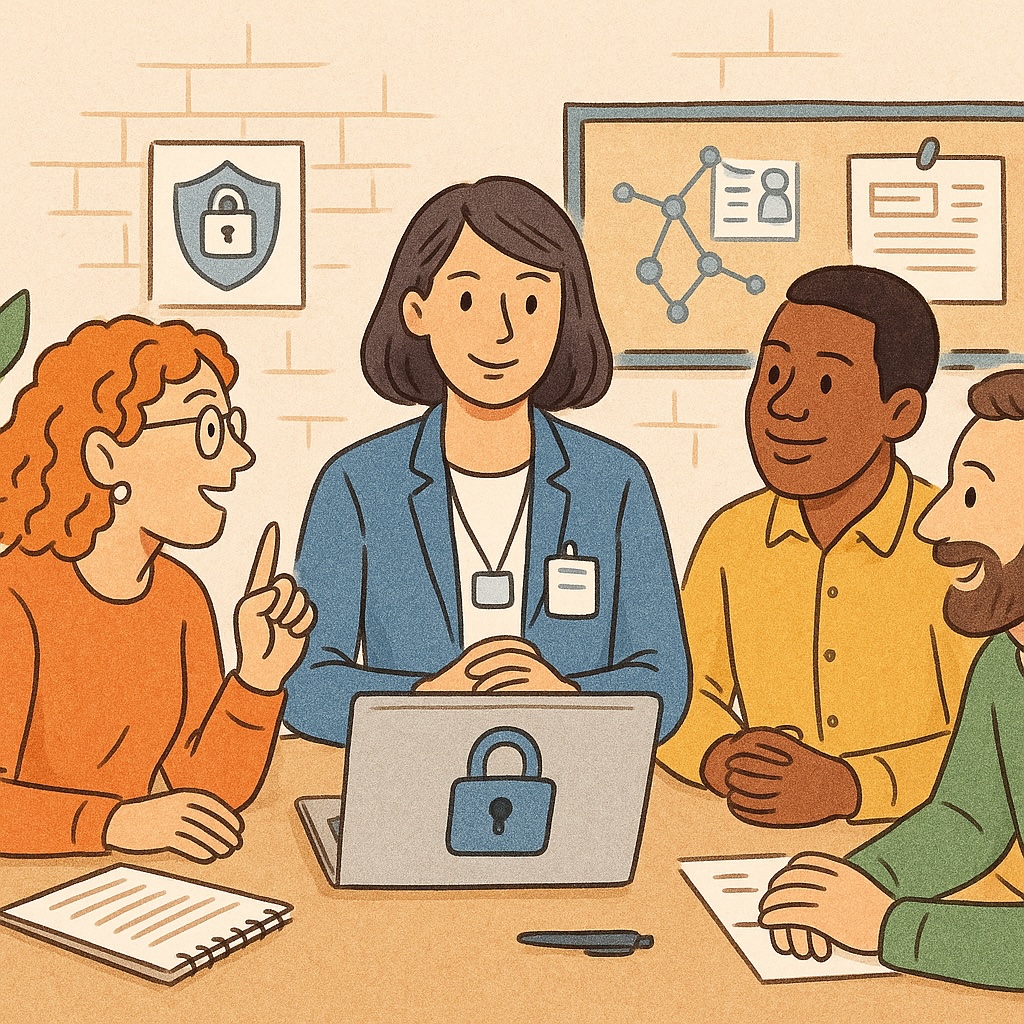What does a Data Privacy Officer do?
A Data Privacy Officer (DPO) plays a vital role in protecting personal data and ensuring compliance with privacy legislation within an organization. This professional is responsible for overseeing and advising on the use, storage, and security of sensitive personal information. In Europe, the role of the DPO has become even more important with the introduction of the General Data Protection Regulation (GDPR).
What does a Data Privacy Officer do?
A Data Privacy Officer ensures that the organization handles personal data in a lawful, transparent, and secure manner. The role requires not only legal knowledge of privacy legislation but also a sharp understanding of organizational processes and IT systems.
Typical responsibilities of a Data Privacy Officer:
- Developing and implementing privacy policies, procedures, and guidelines that comply with applicable laws and regulations.
- Informing and advising executives, management, and staff on data protection obligations.
- Conducting Data Protection Impact Assessments (DPIAs) for projects involving sensitive or large-scale data processing.
- Monitoring GDPR compliance and other relevant regulations, including supporting audits and internal controls.
- Handling data subject requests, such as access or deletion requests, and managing data breaches.
- Acting as the point of contact for supervisory authorities, such as the Data Protection Authority.
- Contributing to awareness campaigns, education, and training on privacy and information security within the organization.
- Collaborating with other departments such as Legal, IT, HR, and Security to embed privacy into all business processes.
Why is the role of a DPO important?
In a time when digital transformation is central and organizations are collecting and processing more data than ever, trust from customers, employees, and partners is invaluable. The DPO helps prevent reputational damage, mitigate risks, and avoid fines. Moreover, the DPO contributes to ethical data use and transparency, enhancing the organization’s competitive edge.
Difference between Data Privacy Officer and Data Protection Officer
In practice, the terms Data Privacy Officer and Data Protection Officer are often used interchangeably. Essentially, they refer to the same role as defined under the GDPR. Sometimes, 'Data Privacy Officer' is more commonly used in international contexts, while 'Data Protection Officer' is the official term under European legislation. However, both roles carry the same core responsibilities.
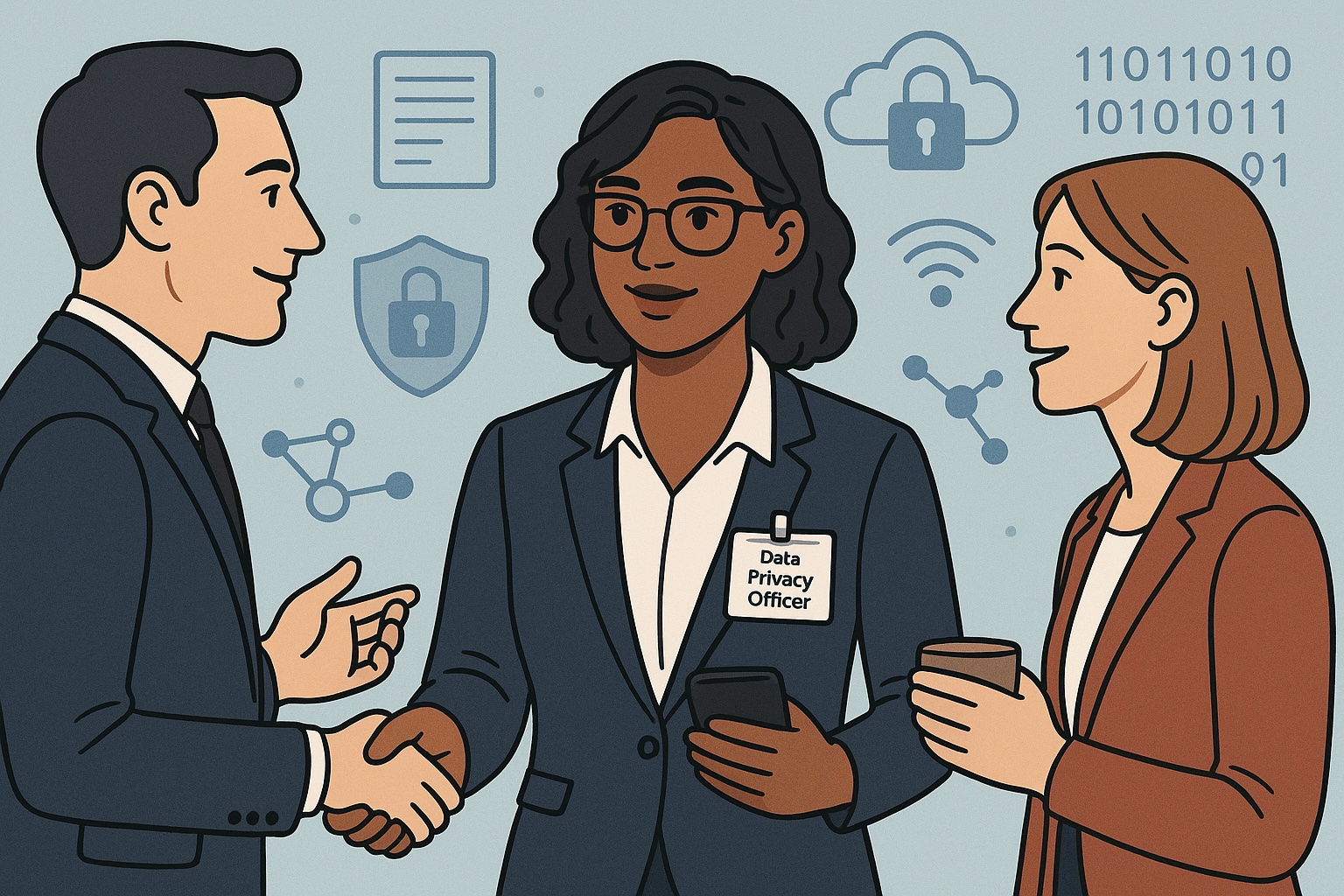
Data Privacy Officer and Data Protection Officer
In an era where digital technologies are evolving at lightning speed and data-driven work has become the norm, the protection of personal data holds a crucial place within organizations. Roles such as the Data Privacy Officer and the Data Protection Officer (both often abbreviated as DPO) play a key role in this. Although these titles are often used interchangeably, there are important nuances in their responsibilities, legal status, and positioning within an organization.
What does a Data Privacy Officer or Data Protection Officer do?
Both the Data Privacy Officer and the Data Protection Officer are responsible for ensuring that the organization complies with relevant data protection laws and regulations. This includes the General Data Protection Regulation (GDPR), as well as sector-specific legislation and international privacy guidelines. They oversee internal processes, advise on risks related to data processing, coordinate data breach notifications, and train employees in privacy awareness.
Additionally, they act as a bridge between the organization and external regulators, such as the Data Protection Authority. Transparency, accountability, and adherence to privacy principles such as data minimization, purpose limitation, and security are central themes in their field of work.
Similarities between the two roles
In practice, the roles of Data Privacy Officer and Data Protection Officer overlap in many ways. Both:
- Monitor compliance with privacy rules and internal protocols
- Assess risks in the processing of personal data
- Advise on technical and organizational data protection measures
- Support the execution of Data Protection Impact Assessments (DPIAs)
- Serve as contact point for supervisory authorities and data subjects
Key differences between the titles
The title Data Protection Officer is an official role as defined by the GDPR. This role is mandatory for certain organizations, such as public authorities or organizations that process special categories of data on a large scale or monitor individuals extensively. The GDPR also sets requirements regarding the independence of the DPO and their positioning within the organization.
The title Data Privacy Officer, on the other hand, is more commonly used in international or commercial contexts, where the focus is not only on legal compliance but also on broader privacy strategies. This role may allow for more advisory involvement in areas such as ethical data use, customer trust, and cross-border privacy policies.
A strategic and legal role
Whether an organization opts for a Data Privacy Officer or a Data Protection Officer, the role is not only legally important but also strategic. Privacy has become a matter of reputation and compliance that directly affects customer trust, data security, and organizational continuity.
In many organizations, the DPO is therefore part of multidisciplinary teams that collaborate with, among others, the CISO, Legal Counsel, Data Stewards, and IT Architects. Collaboration between these disciplines is essential to establish a privacy-by-design culture.
The future of privacy roles
With the rise of AI, big data, and international data flows, privacy roles are becoming increasingly important and complex. DPOs are now dealing with topics such as algorithmic transparency, ethical data usage, and data sovereignty. Organizations that take privacy seriously invest in well-trained DPOs with knowledge of legislation, technology, and change management.
Conclusion
Although the terms Data Privacy Officer and Data Protection Officer may seem interchangeable, there are differences in legal framework, positioning, and responsibilities. What they have in common is their essential role in protecting personal data and fostering a privacy-conscious organizational culture. In the digital age, that is not a luxury but an absolute necessity.

Job Profile of a Data Privacy Officer
What does a Data Privacy Officer do?
A Data Privacy Officer (DPO) is responsible for safeguarding the privacy of personal data within an organization. This professional oversees compliance with privacy legislation such as the GDPR, advises on data processing, and acts as a liaison between the organization, data subjects, and supervisory authorities. The role is crucial in sectors where a large volume of sensitive data is processed, such as healthcare, education, finance, and government.
A typical profile of a Data Privacy Officer includes:
- A relevant academic background, such as law, IT, business administration, information management, or a related field.
- In-depth knowledge of privacy laws and regulations, including the General Data Protection Regulation (GDPR), the ePrivacy Regulation, and international standards.
- Experience in drafting, maintaining, and implementing privacy policies, data breach procedures, DPIAs (Data Protection Impact Assessments), and data processing agreements.
- Ability to identify privacy risks and advise on and implement appropriate measures.
- Knowledge of information security, risk management, and how they relate to data protection.
- Skills in training and raising awareness among staff on privacy issues.
- Excellent communication skills, both verbal and written, to translate complex legal and technical topics into clear language for various audiences.
- Experience with project-based work and leading multidisciplinary teams or change initiatives related to data privacy.
- A high level of integrity and discretion when dealing with sensitive information.
Key competencies and characteristics
- Analytical thinking and attention to detail.
- Persuasiveness and organizational sensitivity.
- Decisiveness, even under pressure or in situations with conflicting interests.
- Independence combined with a strong sense of collaboration.
Relevant tools and systems
- Knowledge of privacy management software such as OneTrust, TrustArc, or DataGuard.
- Experience with risk assessment tools, reporting systems, and data classification methods.
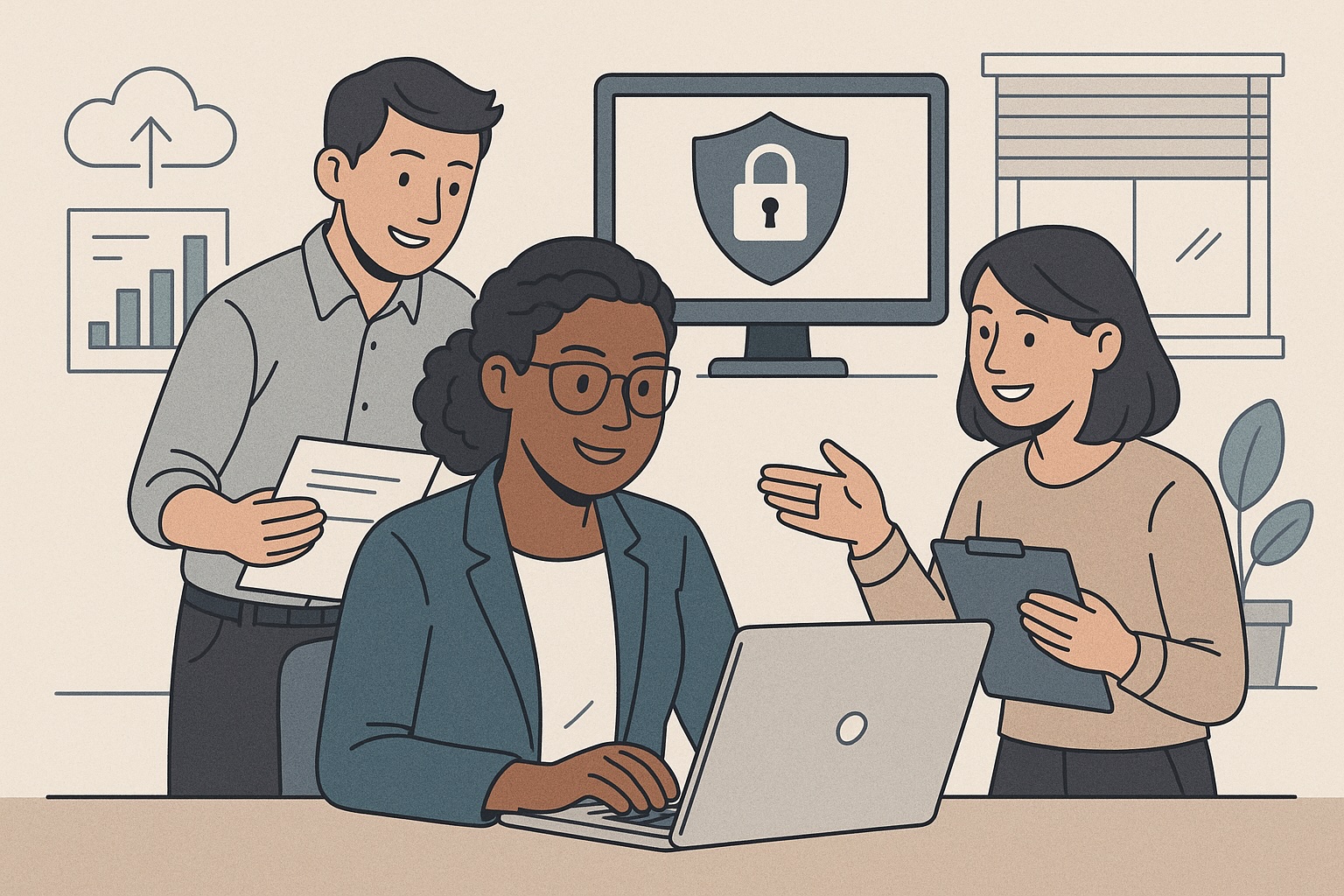
What tools does a Data Privacy Officer use?
Data Mapping
Data mapping tools assist Data Privacy Officers in mapping the entire lifecycle of personal data within an organization — from the moment of collection to deletion. These tools provide insight into where data originates, how it is processed, who has access to it, and where it is stored. They support organizations in identifying risks, improving the transparency of data flows, and ensuring compliance with privacy regulations such as the GDPR.
Data Protection Impact Assessment (DPIA)
DPIA tools support organizations in conducting mandatory risk assessments for data processing activities that pose a high privacy risk. They help systematically document processing activities, identify risks to data subjects, and formulate mitigating measures. These tools ensure that DPIAs are carried out efficiently, in a standardized manner, and demonstrably in accordance with the GDPR.
Privacy Management Software
Privacy management platforms provide a central environment for managing all aspects of data protection. They make it possible to track consents, document processing activities, report data breaches, and manage data subject requests (such as access or deletion requests). By automating processes and offering clear dashboards, these tools enhance control and compliance with privacy rules throughout the organization.
Data Discovery
Data discovery tools help detect and classify personal data within large and complex data systems. They use techniques such as machine learning and pattern recognition to quickly locate, label, and secure sensitive information. This enables the identification of hidden risks and ensures better protection of personal data, as required under the GDPR.
Incident Response
Incident response tools assist in the rapid detection, analysis, and management of data breaches and other privacy incidents. They offer automated workflows, real-time notifications, and reporting capabilities for regulators. These tools are essential for reporting incidents within the legal 72-hour deadline, as prescribed by the GDPR, and for avoiding reputational damage and fines.
Encryption and Anonymization
Encryption tools protect data from unauthorized access by encrypting it, both at rest and in transit. Modern tools support various encryption standards (such as AES-256) and can be easily integrated into existing IT systems. Additionally, there are tools for data anonymization and pseudonymization, which modify personal data so it is no longer directly traceable to an individual — a key technique for minimizing privacy risks.
Awareness and Training
Employee awareness is crucial for a successful privacy strategy. E-learning platforms and interactive training modules ensure that staff remain informed about legislation, internal procedures, and best practices. Regular training helps prevent human errors and promotes a privacy-aware work culture within the organization. Many tools provide reports on participation and progress, allowing DPOs to monitor the level of awareness.
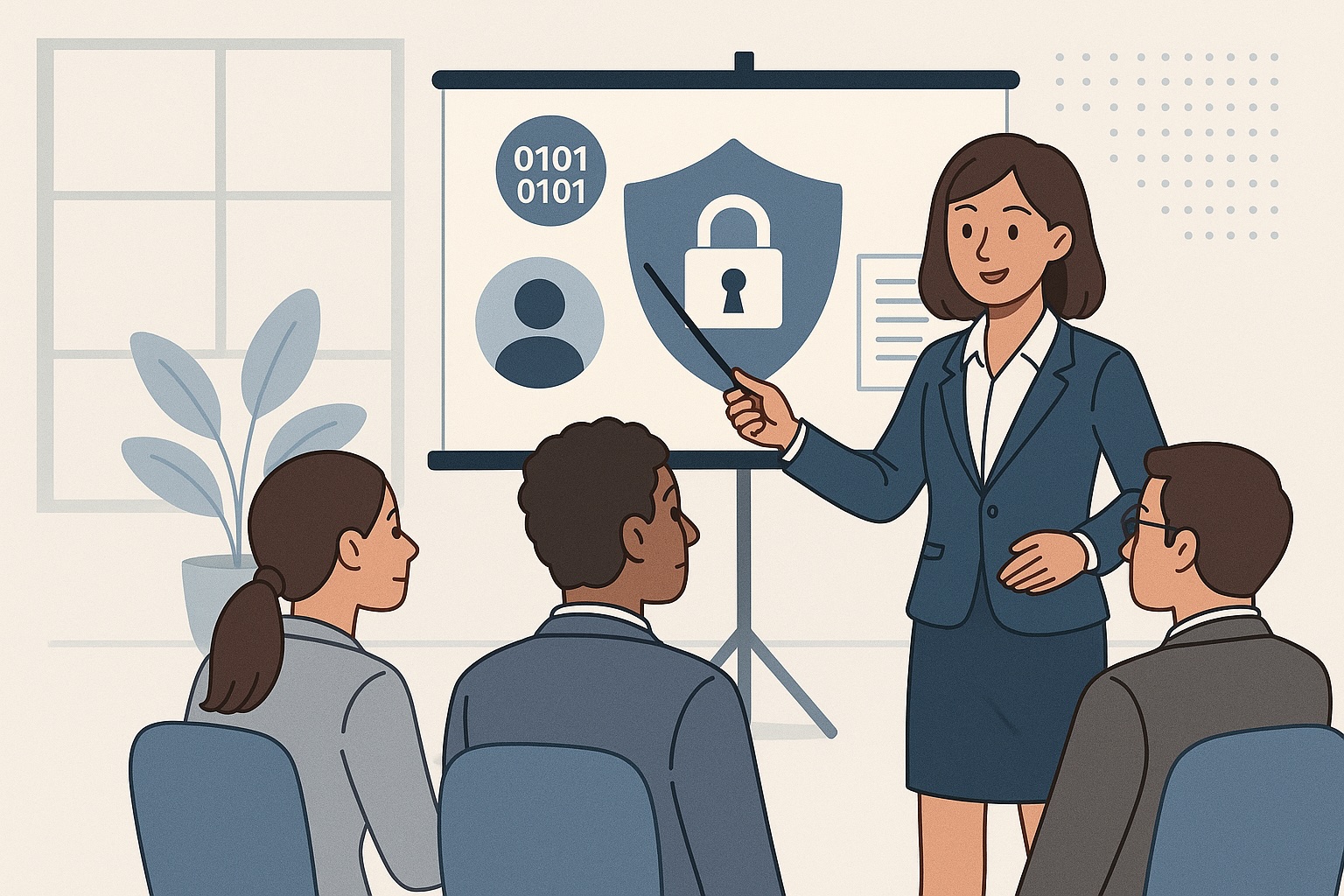
A Day in the Life of a Data Privacy Officer
A Day in the Life of a Data Privacy Officer
08:00 – Starting the Day and Checking Emails
The day begins with a cup of coffee and opening the inbox. The Data Privacy Officer (DPO) immediately scans for urgent messages, such as reports of potential data breaches or questions from colleagues about sharing personal data. The agenda is then reviewed, as the DPO carefully plans the day while keeping room for unforeseen events.
09:00 – Monitoring Data Processing and Compliance Checks
Time to log in to the privacy management system. The DPO checks whether all data processing activities are correctly registered and whether data processing agreements are up to date. Compliance checks are also carried out on new or modified systems, processes, and external data flows. This is essential to keep the organization GDPR-compliant.
10:30 – Meeting with IT and Security
The DPO joins a meeting with the IT department and the CISO (Chief Information Security Officer). Topics on the agenda include the implementation of email encryption and the progress of a planned penetration test. The DPO provides the data protection perspective and ensures that privacy by design is properly applied.
11:30 – DPIA Reviews and Risk Reporting
Next, the DPO reviews a new Data Protection Impact Assessment (DPIA) for an HR application. Risks are assessed, and recommendations are drafted to mitigate them. The DPO then works on a monthly report on privacy incidents and improvement measures, intended for the management team.
13:00 – Lunch Walk with a Legal Colleague
A relaxing lunch walk with a colleague from the legal department. They have an informal discussion about how upcoming regulations, such as the AI Act, may impact their organization. These kinds of conversations promote alignment and collaboration between departments.
14:00 – Providing Training to New Employees
In the afternoon, an internal privacy training session is scheduled for new employees. The DPO explains in an accessible way what personal data is, how it must be protected, and what responsibilities employees have. Practical examples make the training concrete and relevant.
15:30 – Answering Internal Questions and Ad-Hoc Advice
The DPO answers questions from departments like marketing, HR, and customer service. Can this campaign use data from the CRM? What are the retention periods for job applications? The DPO constantly balances legal frameworks with pragmatic solutions.
16:30 – Coordination with External Stakeholders
Later in the day, the DPO has a video call with an external processor to discuss compliance with the processing agreement. Topics include logging, access rights, and the planned audit.
17:30 – Wrapping Up and Following Up on Actions
At the end of the workday, the DPO updates the to-do list, logs important decisions in the privacy register, and notes any pending actions for the next day. One last look at the inbox, and then it’s time to unplug.
A Versatile and Responsible Role
The role of a Data Privacy Officer requires constant alertness, up-to-date knowledge of laws and regulations, and strong communication skills. It’s a role where you make a daily impact on how safely and responsibly an organization handles personal data.
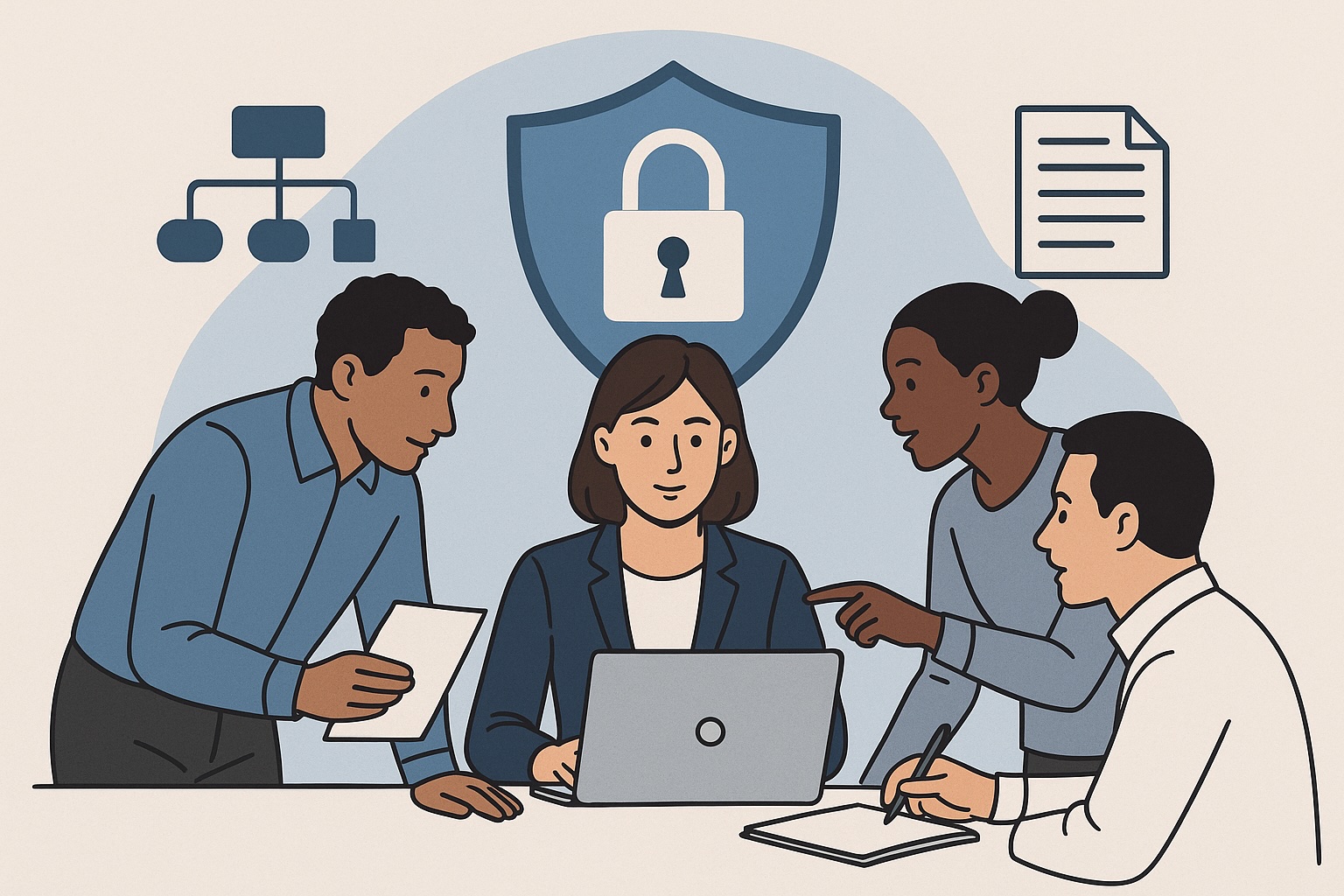
What does a Data Privacy Officer earn?
The salary of a Data Privacy Officer (DPO) can vary significantly depending on factors such as experience, industry, location, and type of organization (government, healthcare, finance, or private sector). Data Privacy Officers play a crucial role in ensuring compliance with privacy regulations (such as the GDPR) and protecting personal data within organizations. Below is an overview of salary expectations by job level.
Entry Level (Junior Data Privacy Officer)
A Junior Data Privacy Officer, often a recent graduate or someone transitioning from a legal, IT, or compliance role, typically earns between €3,200 and €4,000 per month. At this level, you often work under supervision on tasks such as conducting DPIAs, drafting privacy statements, and supporting audits and internal training sessions. Basic knowledge of the GDPR and experience with tools for data mapping or document management are required.
Mid-level (Data Privacy Officer)
A mid-level DPO with several years of experience (typically between 3 and 6 years) earns on average between €4,000 and €5,200 per month. You work independently and serve in an advisory role to management and departments such as HR, IT, and marketing. You conduct risk assessments, oversee DPIAs, draft policies, and safeguard processes related to data minimization and retention periods. Knowledge of privacy by design and relevant legislation is essential at this level.
Senior Level (Senior Data Privacy Officer)
A Senior DPO with more than 6 years of experience can expect a salary between €5,200 and €6,500 per month. You take a leading role in strategic privacy policies, act as the primary contact for the Data Protection Authority, and manage colleagues or privacy teams. You possess in-depth knowledge of laws and regulations, experience with complex data flows, and often hold additional certifications such as CIPP/E or CIPM.
Chief Privacy Officer / Head of Privacy
A Chief Privacy Officer or Head of Privacy operates at an executive level and typically earns between €6,500 and €8,000 per month, depending on the sector and level of responsibility. You are ultimately responsible for privacy policy at the group level, manage multiple DPOs, and translate regulations into company-wide strategies. This role is more common in multinationals, hospitals, or government institutions with complex data processing operations.
Location and Sector
In the Randstad region and within international organizations, salaries are often higher than at smaller institutions outside major cities. Sectors such as healthcare, telecom, finance, and technology often offer greater growth opportunities and higher compensation levels for privacy professionals with specialized expertise.
Education and Skills
A university degree in law, IT, public administration, or information security is often required. Certifications such as CIPP/E, CIPM, or CDPO are highly valued. In addition, skills such as policy advising, legal analysis, communication, and employee training are essential. A technical understanding of data flows and information systems is a plus.
| Job Level | Experience | Monthly Salary (gross) |
|---|---|---|
| Junior Data Privacy Officer | 0–2 years | €3,200 – €4,000 |
| Data Privacy Officer (mid-level) | 3–6 years | €4,000 – €5,200 |
| Senior Data Privacy Officer | 6+ years | €5,200 – €6,500 |
| Chief Privacy Officer / Head of Privacy | Strategic / Executive level | €6,500 – €8,000 |

Career Path and Growth Opportunities as a Data Privacy Officer
Career Path and Growth Opportunities as a Data Privacy Officer
A career as a Data Privacy Officer (DPO) offers ample opportunities for growth, specialization, and professional development. In a world where privacy regulations like the GDPR are becoming increasingly strict and data protection is critical, the demand for privacy experts is growing rapidly. This makes the profession not only socially relevant but also future-proof and strategically valuable across nearly every sector.
Advancing to Senior or Leadership Roles
As you gain more experience with data protection, risk management, and compliance, you can move into more senior roles within the organization. Common next steps include positions such as Senior Data Privacy Officer, Chief Privacy Officer (CPO), or Global Privacy Manager. In these roles, you typically have broader responsibility for the overall privacy strategy, manage teams, and advise the board on strategic privacy matters.
Specialization in Sector or Technology
Some DPOs choose to specialize in a specific sector, such as healthcare, financial services, government, or technology. Sector-specific knowledge makes you especially valuable, as each domain faces unique laws, sensitivities, and technical challenges. Technological specializations are also emerging, such as privacy by design, cybersecurity, or AI ethics.
Working as an Independent Consultant or Advisor
For those seeking more flexibility and variety, it is also possible to work as an independent consultant or advisor. In this role, you support various organizations in implementing and improving their privacy policies, conducting audits, or managing data breaches. This path often offers a broader perspective and a diverse client base, ranging from start-ups to multinationals.
Continuous Development and Certification
Since privacy laws and technological innovations are constantly evolving, continuous learning is essential. Data Privacy Officers regularly attend trainings, webinars, and obtain certifications such as CIPP/E, CIPM, or ISO 27701. This strengthens their expertise and increases their chances of promotion or attractive consultancy opportunities.
Conclusion
The role of Data Privacy Officer provides a solid foundation for a sustainable career in data and compliance. Whether you advance within an organization, specialize in a niche market, or build your own practice, the possibilities are broad and future-oriented. It is a field where legal knowledge, technological affinity, and communication skills come together, offering plenty of room for personal and professional growth.
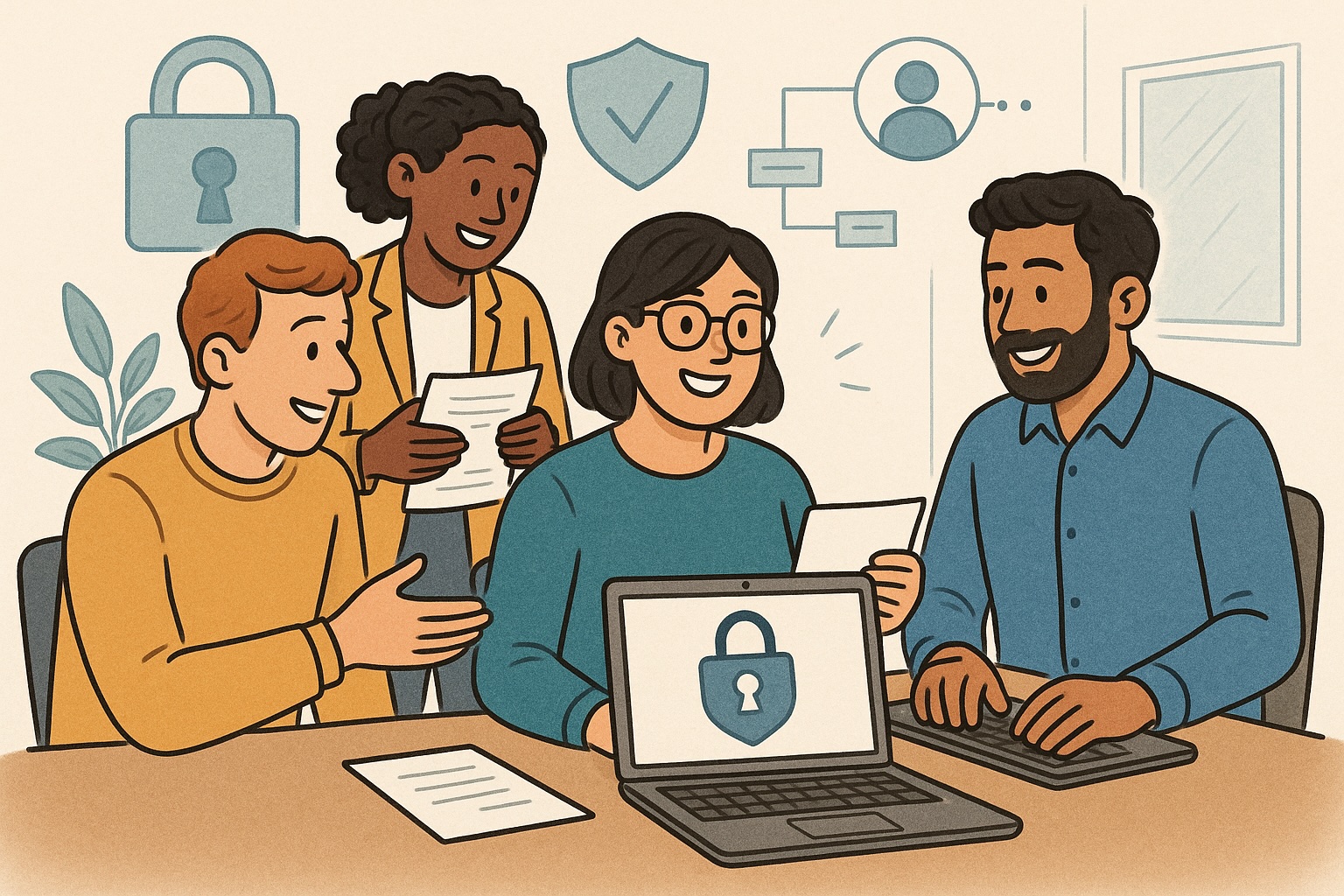
Training and Certification for Data Privacy Officers
To be successful as a Data Privacy Officer (DPO), it is essential to continuously invest in your professional development. Data protection regulations evolve rapidly, and organizations expect their DPO to stay fully up to date. A strong combination of academic background, practical experience, and targeted certifications forms the foundation for a successful career in privacy and data protection.
Relevant Education
Many Data Privacy Officers hold a degree in law, information science, cybersecurity, public administration, or another relevant field at the bachelor’s or master’s level. Increasingly, professionals are also choosing specialized privacy programs or post-graduate data protection courses. These programs provide a foundation for understanding legislation such as the GDPR, as well as broader topics like ethics, data minimization, and risk management.
Certified Information Privacy Professional (CIPP)
Offered by the International Association of Privacy Professionals (IAPP), this certification is the international standard for professionals in privacy law. The CIPP is available in different regional variants, including CIPP/E for Europe, and covers legal frameworks, data subject rights, and controller obligations in depth. The CIPP is particularly suitable for DPOs who approach privacy from a legal or compliance perspective.
Certified Information Privacy Manager (CIPM)
The CIPM is also an IAPP certification but focuses on the operational and strategic management of a privacy program within an organization. From policy to audits, and from awareness to reporting: the CIPM certification is aimed at professionals who want to establish, lead, and improve privacy as a business function. Combined with the CIPP, it is often referred to as the gold standard for DPOs.
Certified Information Privacy Technologist (CIPT)
The CIPT focuses on the intersection of technology and privacy. This includes designing privacy-by-design architectures, applying encryption, and managing access rights. This certification is ideal for technically-oriented privacy professionals who operate at the crossroads of IT and data protection. The CIPT is particularly relevant as organizations increasingly adopt advanced data systems and cloud solutions.
Other Relevant Certifications
In addition to the IAPP certifications, there are other valuable qualifications for Data Privacy Officers. Examples include:
- ISO/IEC 27701 Lead Implementer – for those aligning privacy initiatives with international information security standards.
- ECPC-B DPO Training Programme – a European program for data protection officers, focused on GDPR implementation and compliance.
- Privacy & Data Protection Foundation/Practitioner (PDPP) – for professionals seeking insight into privacy principles and their practical application.
Why Certification Is Essential
Earning recognized certifications not only demonstrates your expertise but also increases your employability in a labor market where privacy professionals are in growing demand. Certifications help you stand out as a specialist and give employers and clients confidence that you meet the highest standards in data protection.
Moreover, continuous professional development enables you to respond effectively to changing legislation, emerging technological risks, and rising expectations from regulators. A certified Data Privacy Officer is therefore better equipped to support organizations in protecting personal data and meeting privacy obligations.
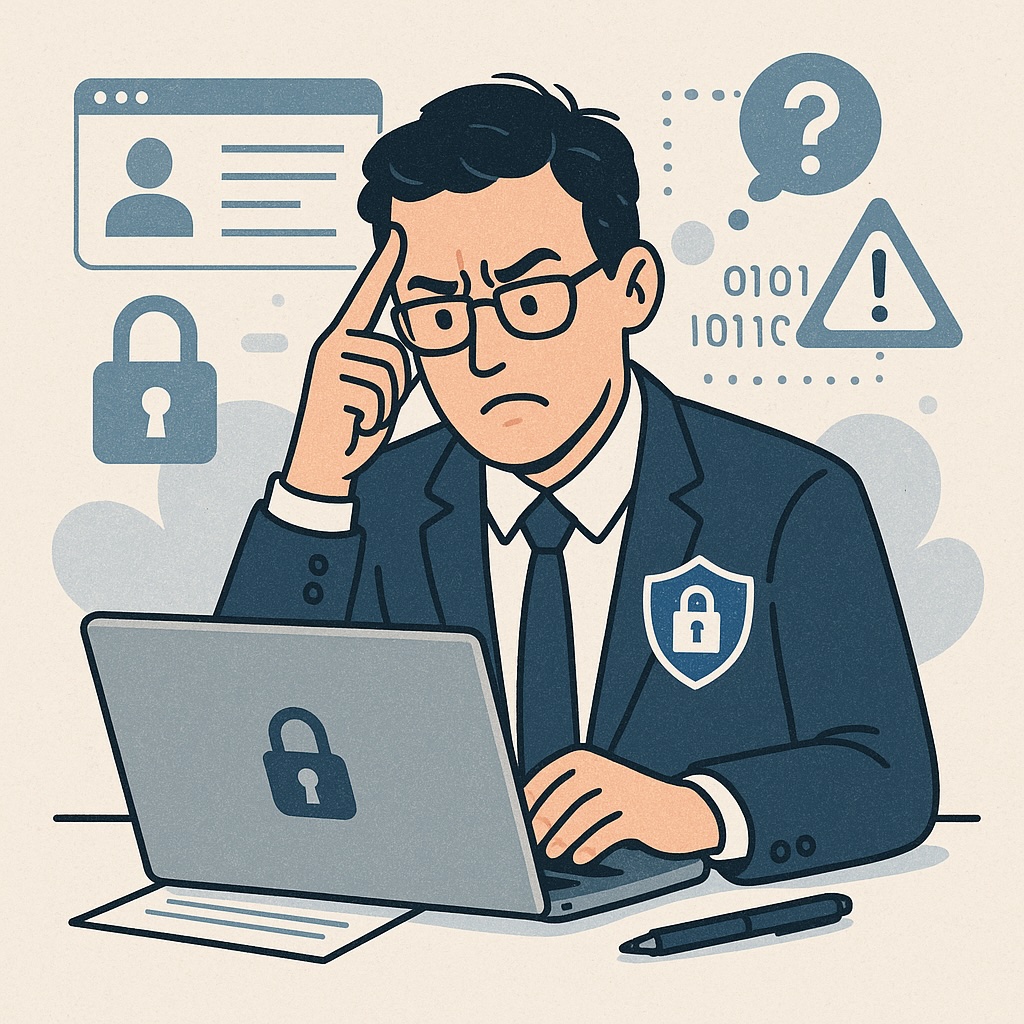
Networking and Industry Associations
Industry Associations and Professional Organizations
For a Data Privacy Officer, staying actively engaged with the professional community is essential. This not only helps to remain up to date with the latest regulations and case law but also provides insights into technological innovations and practical solutions.
Membership in industry associations such as the IAPP (International Association of Privacy Professionals) or national networks of privacy experts offers access to specialized training, certifications (such as CIPP/E or CIPM), legal updates, and industry research. These networks also facilitate the exchange of best practices, case studies, and ethical dilemmas.
Industry-specific associations in sectors like healthcare, government, or finance often have their own privacy-focused working groups, allowing DPOs to deepen their expertise within their specific domain. Regular participation in seminars, webinars, roundtables, and networking events contributes to ongoing professional development and visibility within the field.
Networking via Online Platforms
In addition to formal industry organizations, online communities and knowledge platforms are of great value to data privacy professionals. Think of specialized LinkedIn groups, professional forums, Slack communities, or closed user groups of specific tools or vendors.
Through these platforms, DPOs can ask questions, share knowledge, identify trends, and discuss current topics such as AI & privacy, data minimization, or DPIA methodologies with peers. Online networking fosters accessible contact with other professionals worldwide and provides access to a continuous flow of new insights, tools, and career opportunities.
By being regularly active online, you also build a strong digital profile. This not only increases your reach within the sector but can also lead to invitations for panels, advisory roles, or guest speaking engagements.

Impact and Societal Relevance
The Societal Impact of the Data Privacy Officer
The Data Privacy Officer (DPO) plays a key role in protecting individuals' privacy rights in an increasingly digital society. At a time when personal data is constantly being collected, processed, and shared, the role of the DPO is more important than ever. This professional ensures that organizations not only comply with laws and regulations such as the General Data Protection Regulation (GDPR) but also handle personal data ethically.
Beyond Compliance: Building Trust
The responsibilities of a DPO go far beyond monitoring compliance. They actively contribute to building trust between organizations and their customers, citizens, or partners. By proactively developing data protection policies and minimizing risks, the DPO demonstrates that the organization takes privacy seriously. This trust is essential for brand loyalty, customer relationships, and societal reputation.
Protection of Fundamental Rights
A DPO is essentially a guardian of citizens' fundamental rights in a digital world. The protection of personal data is not just a legal requirement but also an ethical obligation. By helping organizations handle data carefully and transparently, the DPO helps prevent data breaches, misuse, and improper profiling of individuals.
Societal Relevance and Broader Impact
The societal relevance of a Data Privacy Officer extends far and wide. In sectors such as healthcare, education, government, and finance, they contribute to securing sensitive data and promoting digital equality. They support inclusion by overseeing fair and unbiased data processing, which is crucial in algorithms and automated decision-making.
In an era of rising cyber threats and declining trust in digital services, the DPO helps organizations become resilient. As such, they are a vital link in protecting digital infrastructure and the public interest.
Changing Mindsets and Organizational Culture
An effective DPO not only organizes processes but also fosters broader awareness within the organization. By providing training, improving internal communication, and raising awareness, they contribute to a culture where privacy is not a burden but a shared responsibility.
Conclusion: Essential Role in a Digital Society
The Data Privacy Officer is indispensable for organizations that aim to operate with integrity, transparency, and respect for the privacy of their stakeholders. Their work fosters trust, reduces risks, and contributes to a society where technology and human rights go hand in hand. In a world where data is as valuable as gold, the DPO is the guardian of both moral and legal boundaries.

Case Study: The Role of Data Privacy Officer
Background
Within HealthTech Solutions, a rapidly growing and innovative company in health technology, the volume of sensitive customer and patient data increased at a fast pace. With the introduction of smart medical devices, digital patient records, and AI-based diagnostic tools, managing personal data became more complex and sensitive. The organization was at a turning point: continue to grow while maintaining trust and security, or risk data breaches and fines.
The Challenge
In the highly regulated healthcare sector, protecting personal data is of vital importance. HealthTech Solutions was faced with increasingly complex requirements from the GDPR, international regulations, and contractual obligations with healthcare institutions and insurers. The existing data processing procedures were fragmented and poorly documented. In addition, there was little awareness among employees about the importance of data protection. At the same time, the company did not want privacy compliance to stifle innovation.
The Data Privacy Officer's Approach
Thomas, appointed as Data Privacy Officer (DPO), was tasked with gaining control over all data flows within the organization and establishing a solid privacy policy. His approach was based on three pillars:
- Audits and risk analysis: Thomas began with a comprehensive audit of all processing activities. He mapped out where personal data was stored, processed, and shared, and assessed these processes for risks and compliance gaps.
- Training and awareness: He introduced interactive privacy workshops for all departments – from IT to marketing and customer service – to raise awareness about data security. The motto: “Every employee is jointly responsible for privacy.”
- Privacy by Design: Thomas worked closely with product developers and data scientists to integrate privacy principles from the design phase. Every new product and process was reviewed against privacy guidelines from the outset. Standard DPIAs (Data Protection Impact Assessments) became part of the development cycle.
Result
Within nine months, the transformation was felt throughout the organization. The number of undocumented data processing activities was halved. During regulator audits, HealthTech Solutions comfortably met all requirements, which led to increased trust among partners, customers, and certification bodies.
Furthermore, a cultural shift occurred: employees proactively started asking questions about data protection and contributed to privacy-friendly solutions. Thomas was no longer seen solely as a compliance expert but also as a strategic sparring partner in innovation projects.
HealthTech Solutions was able to continue its data-driven strategy without compromising users' privacy rights. Thanks to the DPO’s work, risks were minimized, reputational damage was avoided, and growth opportunities were secured.
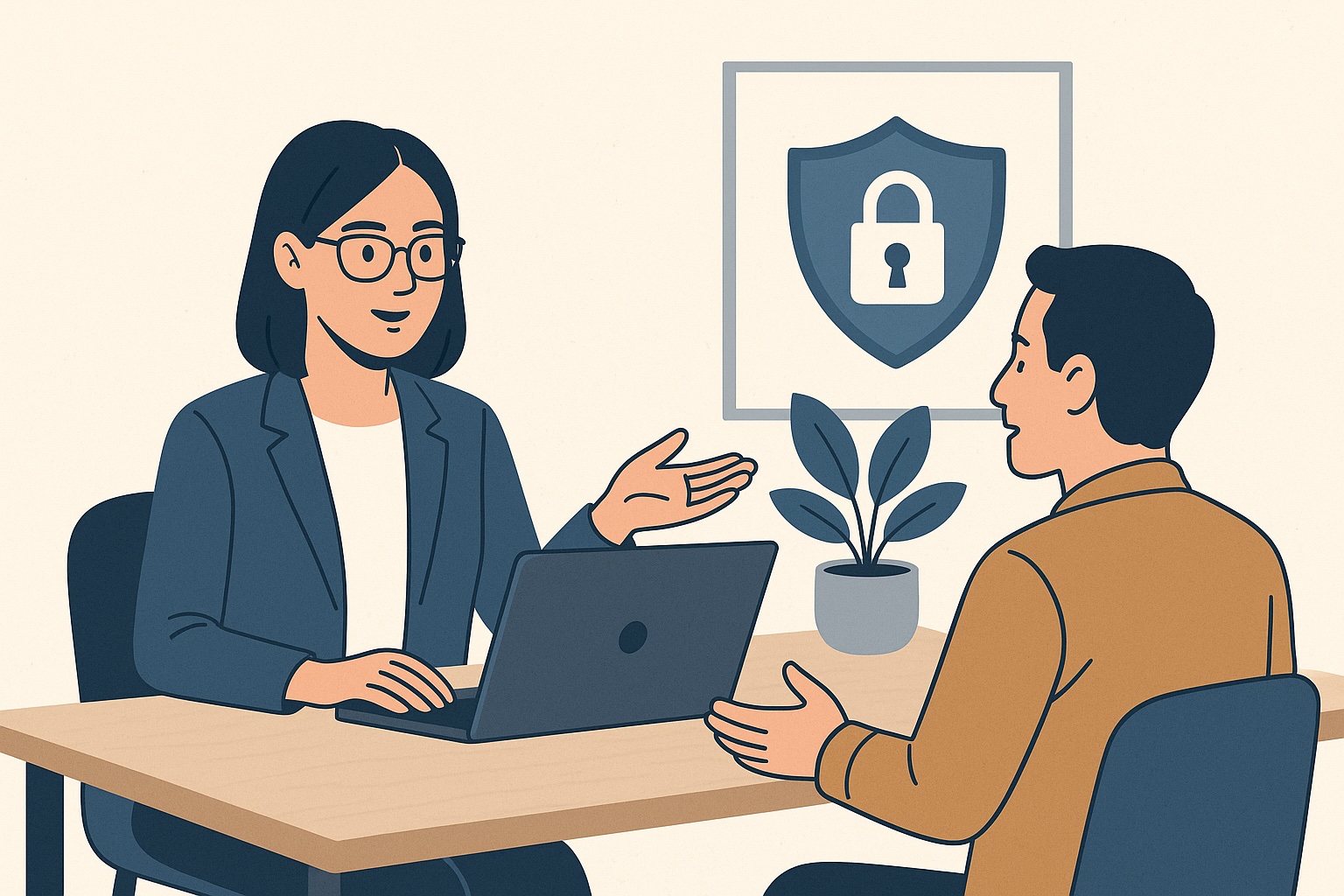
Looking for a Data Privacy Officer?
For a small fee, you can easily post your job openings on our platform and reach our large, relevant network of data and analytics specialists. Applicants respond directly to you, without any intermediaries.
On DataJobs.nl, we connect supply and demand in the data and analytics job market directly—without middlemen. You won’t find vacancies from recruitment agencies on our site. Visitors can view all job postings for free and without an account, and apply directly.
See the options for posting jobs here. Questions? Contact us!
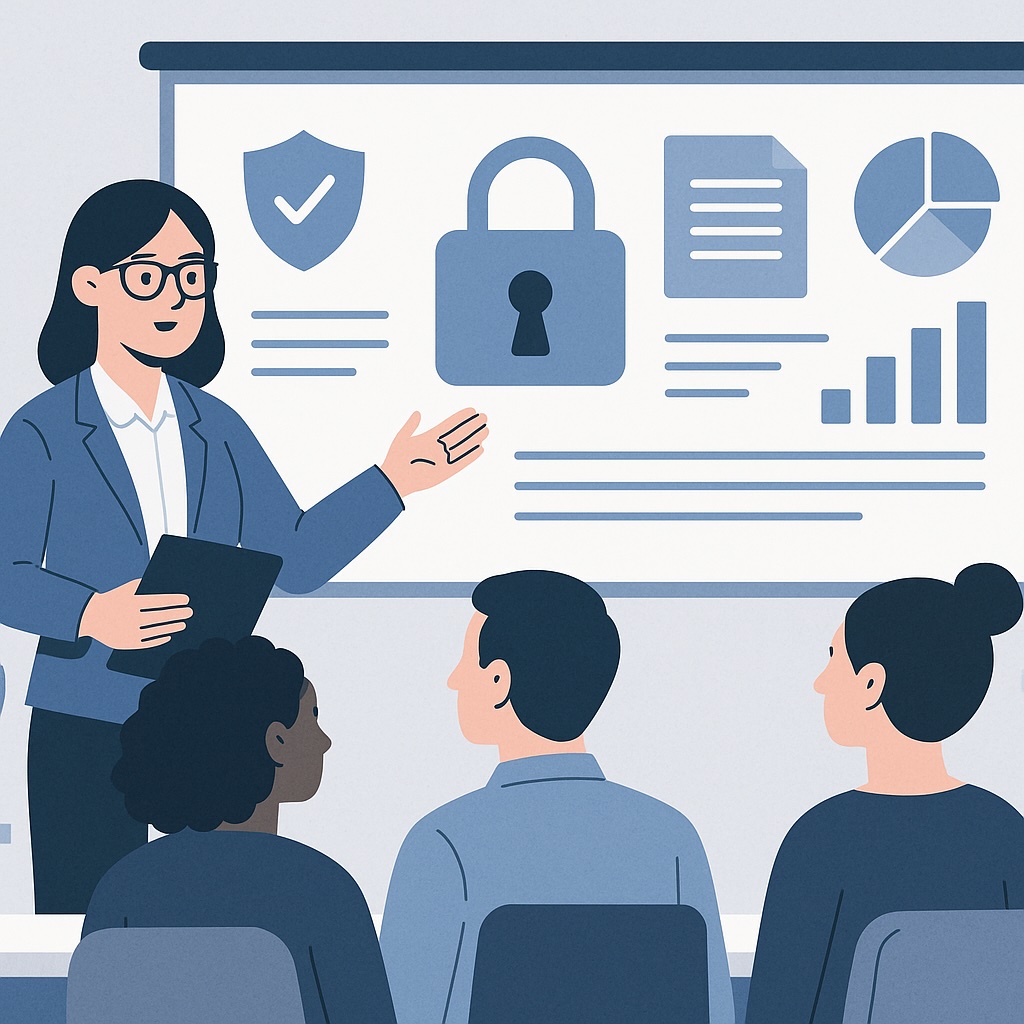
Op zoek naar een uitdaging in data & analytics?
Bekijk hier alle actuele kansen! See vacancies- What does a Data Privacy Officer do?
- Data Privacy Officer and Data Protection Officer
- Job Profile of a Data Privacy Officer
- What tools does a Data Privacy Officer use?
- A Day in the Life of a Data Privacy Officer
- What does a Data Privacy Officer earn?
- Career Path and Growth Opportunities as a Data Privacy Officer
- Training and Certification for Data Privacy Officers
- Networking and Industry Associations
- Impact and Societal Relevance
- Case Study: The Role of Data Privacy Officer
- Vacancies for Data Privacy Officers
- Looking for a Data Privacy Officer?



